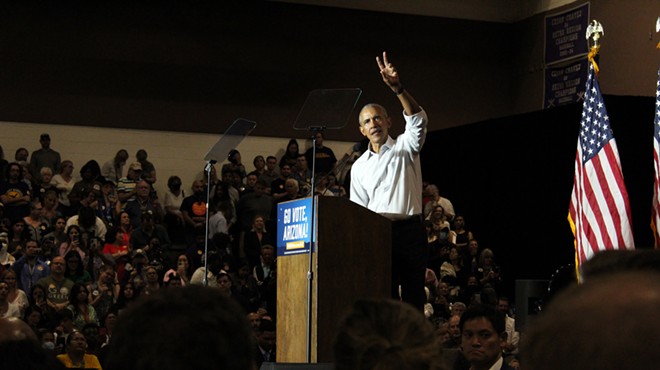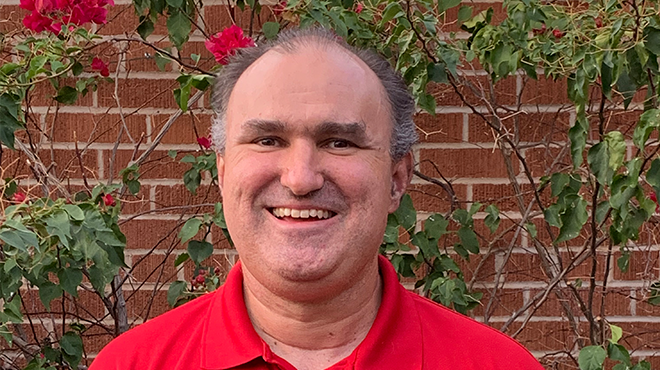Thursday, November 19, 2015
McSally "Analyzing" Refugee Legislation in Congress
The U.S. Congress is now moving forward with legislation to address the uproar over allowing Syrian refugees (or, in the case of Arizona Gov. Doug Ducey, refugees from anywhere in the world) into the United States. The New York Times reports:
Congressional Republicans increased pressure on the White House on Wednesday to halt a program for Syrian refugees, setting up a confrontation with President Obama over the issue as they head into a battle over spending next month.Congresswoman Martha McSally has concerns about the vetting of refugees. McSally spokesman Patrick Ptak told the Weekly via email:
Representative Michael McCaul, Republican of Texas and chairman of the House Homeland Security Committee, introduced a bill on Wednesday that would beef up the screening process for Syrians and Iraqis who enter the United States as refugees. The House is expected to vote on the measure on Thursday, a remarkable pace for legislation that showed the urgency in Congress to respond to the deadly attacks in Paris.
The bill, which received the full support of Speaker Paul D. Ryan, would require that the director of the Federal Bureau of Investigation, the secretary of the Department of Homeland Security and the director of national intelligence confirm that each applicant from Syria and Iraq poses no threat. The bill did not go into specific measures; rather, it said that officials “shall take all actions necessary” for a “thorough” background check.
Top officials at the FBI, DHS, and at National Counterterrorism Center have indicated that we have gaps in our refugee security vetting process. In an October hearing, FBI Director James Comey stated: “We can only query against that which we have collected. And so if someone has never made a ripple in the pond in Syria in a way that would get their identity or their interest reflected in our database, we can query our database until the cows come home, but there will be nothing show up because we have no record of them.”Talking Points Memo looks at how the hysteria over refugees developed.
Over the last six months, Rep. McSally and her colleagues on the Bipartisan Task Force to Combat Foreign Fighter Travel have investigated what gaps exist and recently made over 50 recommendations to improve our security programs. Their findings pointed to vulnerabilities not just in the refugee vetting process, but in ISIS fighters from Visa Waiver countries and homegrown threats in America directed or inspired by radical violent extremism. Right now, we know that nearly 30,000 fighters from over 100 countries have traveled to Syria and Iraq, including 4,500 Western fighters. We know that 250 Americans have traveled, or attempted to travel, to Syria to fight, and the FBI has investigations of ISIS supporters in all 50 states.
Late yesterday, a House task force formed to address gaps in our vetting process introduced legislation to require certification that new refugees do not represent a security threat before being admitted. Rep. McSally is currently analyzing that legislation as well as solutions that will ensure all gaps and vulnerabilities are addressed.
Slate takes a historic look at how some Americans have always voiced fears of refugees and immigrants:
Again and again, when faced with the question of refugees and immigrants, Americans are ambivalent and sometimes hostile. In 1975, for example, 62 percent said they feared Vietnamese refugees would take their jobs. Four years later, just as many said they didn’t want to admit “boat people” from Vietnam, who were fleeing the country’s repressive communist government. Americans said the same for Cuban refugees in the 1980s, Haitians in the 1990s, and most recently, the wave of refugee children from South America, which brought protests and fears of disease and infection.
You can even apply this dynamic to the Great Migration, the huge movement of black Americans from the South to cities and towns across the country. These Americans were internal refugees, fleeing lawlessness and racist terrorism. When they reached their destinations—cities like Detroit and Chicago—they faced deep hostility from existing residents, who blamed them for crime and economic disadvantage.
The broad point—the reason to focus on the these patterns of hostility—is to emphasize the extent to which they are part of the American tradition. In calling for acceptance of Syrian refugees, President Obama, Sen. Elizabeth Warren, the Conference of Catholic Bishops, and others are voicing one set of American values—the ones we want to hold ourselves to. But the same goes for Sen. Ted Cruz, Gov. Greg Abbott, and the other Republican governors and presidential candidates who want to reject them—those too are American values.
The question of the refugees isn’t if we’ll honor our values; it’s which ones we’ll choose. Will we embrace our heritage of inclusion or reject it for nativism? Will we be a country of actual open arms or one where our rhetoric is in recurring contrast to our actions?















